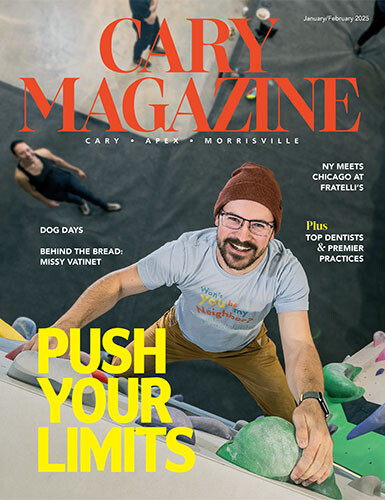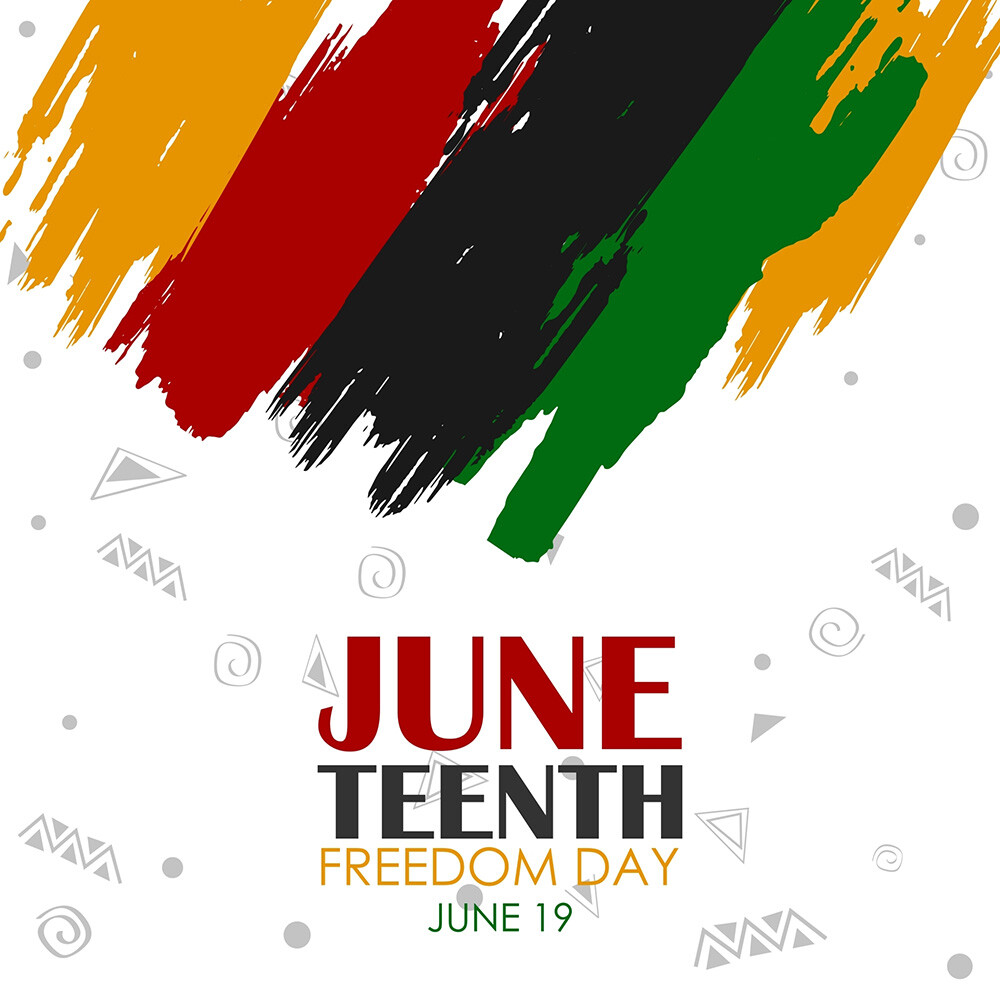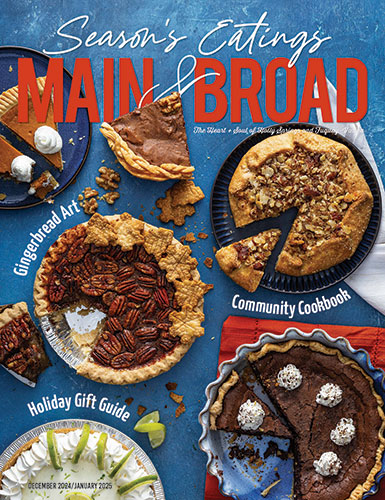“It’s important to note that during Juneteenth here in North Carolina … history rewards those who seek it out,” says cultural historian Darrell Stover.
Juneteenth commemorates the emancipation of enslaved people in the United States, meaning its history is one of joyous celebration as well as somber reflection and remembrance, particularly in the South.
Since community interest in a Juneteenth celebration swelled six years ago, Stover has worked with the Town of Cary to develop its annual Juneteenth event — one of several celebrations in the Triangle. We caught up with him for a lesson on the importance of the day and how to honor its complex history.
Read his insights, then see him speak at Cary’s Juneteenth celebration, or visit one of the other local events.
What is the essence of Juneteenth, and how has the spirit of the celebration evolved over time?
You need to understand that the celebration comes out of the late arrival of emancipation, having manifested in the Proclamation issued by President Abraham Lincoln in 1863. And of course, there were a host of communities that did not receive that message, even with the ending of the Civil War, until it arrived.
And so Galveston, Texas, received this message in 1865 in June, and by then it had been two years since the Proclamation was issued. So you could say it was a late arrival of that message of freedom. More importantly, it certainly was celebrated at the time and has been a mainstay celebration there in Galveston ever since. But there are other communities historically that received that messaging late, communities in Florida and throughout the South. The celebration of Juneteenth formalizes this celebration of freedom, of emancipation. And that results in a true transition, if not transformation, of the United States in defining who is a citizen and what freedoms do they have.
Certainly, for people of African descent, African Americans, this is a very major celebration. So communities have found their own ways of engaging it over the years. Of course, now we know that there has been the establishment of Juneteenth as a national holiday on June 19. But of course, there are celebrations that occur before then, on that day, and thereafter. These celebrations border on major gatherings, picnics and parades, speeches and performances, concerts, and just all-around good times.
I think for many, especially for myself, it is about reflection on this transition from enslavement to freedom, and what did that mean for our ancestors, and what did it mean for the country. More importantly, what does it mean for us now, moving forward, with it now being a national holiday. I think it’s very important to not forget the historical moment in which that message arrived.
What ties does Juneteenth have to local history?
Most people understand that this is the South, that North Carolina was a part of the Confederacy, that there were enslaved people here in North Carolina. There were actually plantations that existed in Cary. I speak to that history during the celebration.
There were two major plantations, what was referred to as White Plains Jones and Crabtree Jones plantations. Crabtree Jones was at practically where Crabtree Lake is situated. White Plains would sit in eastern Cary. And these plantations had different owners. Even though Jones is a part of the name, neither of them, to our knowledge presently, were related.
At one time the White Plains plantation owner wanted to free those who were enslaved there. Of course, laws were changed to circumvent that happening ever since that was initiated. Certainly, Crabtree plantation remained in existence through the Civil War. Of course, major impacts of how the war played out resulted in that plantation facing real hardship, as did many such locations in the South during the Civil War as forces advanced, bringing about change and more importantly bringing about freedom and that message. Because that was the major transition point.
There were those who took their freedom — and that’s another important story that is also engaged and celebrated during Juneteenth — and those who gained their freedom upon emancipation, with the arrival of Union forces, or by the end of the Civil War.
What can people expect from Cary’s Juneteenth celebration?
It is structured in a way to specifically give honor, recognition, and encourage reflection on that transition from enslavement to freedom. It certainly embraces the fact that this is a community celebration and that in it being such, there’s a lot that one can enjoy but also one can learn. So there is that history shared. There is an opening procession and celebration of welcome and proclamation and libation. There is usually a scholar brought in to lecture on a component of what would have been the experience centering around freedom as it relates to North Carolina.
And so this year, we have Dr. Freddie Parker, who is history professor emeritus of North Carolina Central University. (He will speak on) What does history say about freedom? For him, he researched the notion of the runaway and how there was a certain degree of advertising that was placed in newspapers. And those newspapers are still available, so he’s created a major database examining that collection of advertising where slave owners, those who had enslaved individuals, posted advertisements for return and described people. And those descriptions were very revealing in how folks were understood to have certain skillsets, how they dressed, how they spoke, where they might be going, because they had been understood that they were going to find their family members.
I think it’s important to note that during Juneteenth here in North Carolina and more specifically in Cary, it is good to understand that history rewards those who seek it out. And the research that Dr. Parker has done really opens the door to a greater understanding of what that life experience was, what the thinking was around achieving freedom. There were a lot of people who weren’t just sitting around waiting for freedom to tap them on the shoulder, but took actions in order to gain their freedom and that of their family members as well.
Is everyone welcome?
Yeah! As I said, it’s a community celebration. Many people should know that the Town of Cary hosts a wide variety of cultural celebrations and festivals and embraces that diversity. And I think this is another example of that.
What lessons can people outside the Black/African American community take away from Juneteenth?
I think just like for those out of the Black community and African American community: a thirst for greater knowledge and understanding of what that experience was. And I think there is something to be said for how one goes about embracing that search. But indeed, we should all share in that thirst for knowledge and understanding.
Can you recommend any resources for people who would like to learn more about the day?
We live in a digital age. There are those of us who grew up with encyclopedias in our households. But now we’ve got Google. We do still have libraries, thankfully. But online, certainly if one were to go to the North Carolina African American Heritage Commission website, I’m sure there’s very specific information. There are a host of museums in the country that have quite a bit of information. So yes, we could talk about the Smithsonian Museum of African American History and Culture and others which opened the door.
There may be some scholars and friends who may know and have insights that they can share. Every community has its own sages and scholars as well, so it may start there. I think there are definitely vast numbers of books researched by real scholars and books written for any age range that examine this whole notion of this transition from enslavement to freedom, this experience we now celebrate as Juneteenth. And so I encourage all to seek it out.
Anything else you’d like to mention?
We’re closing out with a concert by Plunky Branch. He has a band, Plunky and Oneness, and he’s been operative for over 50 years. He’s internationally renowned, and we’re fortunate to have him come and perform. He’s a sax player, multi musician.
But then we have Chinfloo Cultural Heritage Ensemble led by Toya Chinfloo and featuring her daughters. We have Mary D. Williams, who is a scholar of African American music and song, who will be singing “Lift Every Voice and Sing” and then giving us some examples of songs of freedom, and a host of other musicians and performers as well. So it’ll be a full day with food trucks and vendors and good weather.
Upcoming Local Events
Juneteenth at the Pines
Friday, June 14
8-10 p.m.
Carolina Pines Park, 2305 Lake Wheeler Road, Raleigh
Apex Juneteenth Festival
Saturday, June 15
11 a.m. to 5 p.m.
The Depot, 220 N. Salem Street
Cary Juneteenth
Saturday, June 15
1-7 p.m.
Downtown Cary Park, 327 S. Academy Street
Capital City Juneteenth Celebration
Saturday, June 15
noon to 6 p.m.
Dix Park, 693 Palmer Drive, Raleigh
Juneteenth at Mordecai
Saturday, June 15
10 a.m. to 4 p.m.
Mordecai Historic Park, 1 Mimosa Street, Raleigh
Music, Art, & Networking (M.A.N.iFest) Juneteenth Celebration
June 22-23
Fuquay-Varina
Holly Springs Juneteenth Celebration
Saturday, June 22, 4-8 p.m.
Holly Springs Cultural Center, 300 West Ballentine Street





